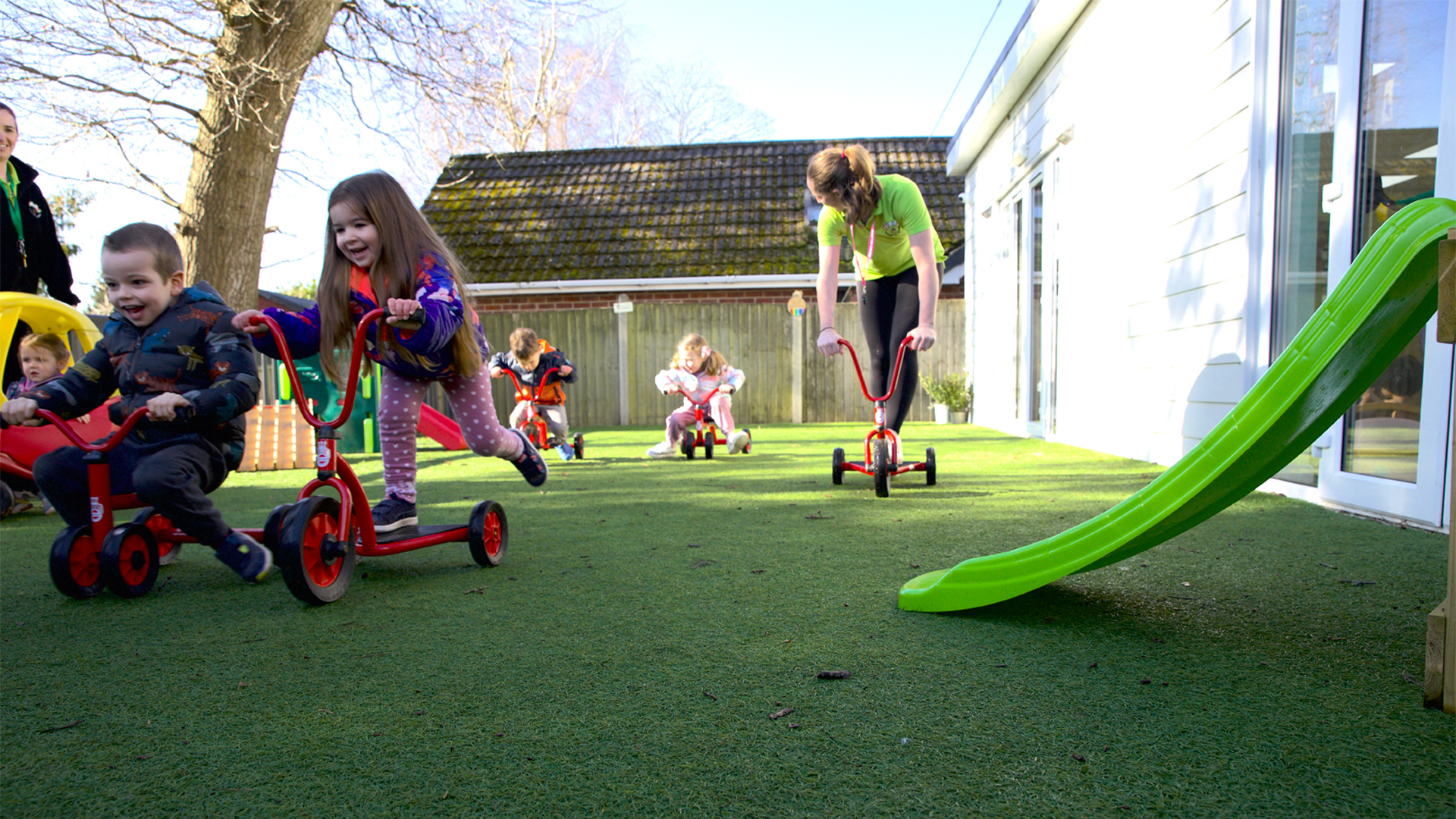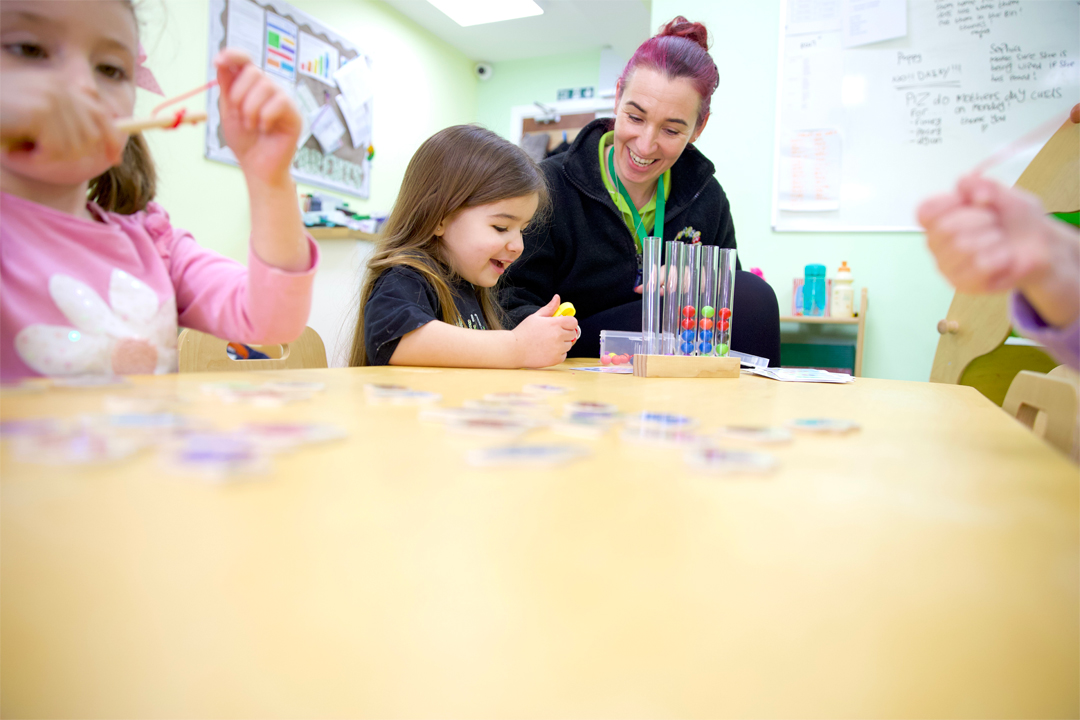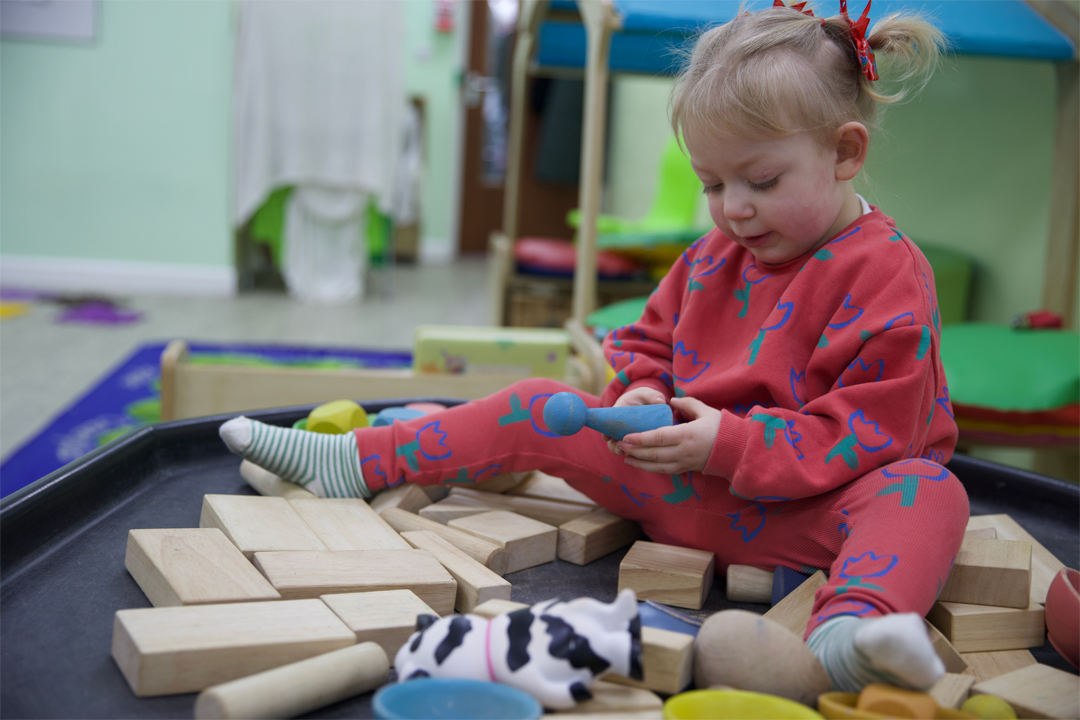The role of adults in play
While child-led play is incredibly important, adults have a vital role too. Our practitioners carefully plan environments and activities that spark curiosity and extend learning. They observe children’s interests and provide just the right level of support — stepping in with encouragement, questions or new challenges when needed and stepping back when children are deep in exploration.
By doing this we help children move their learning forward in a natural, joyful way.
Learning through play and the EYFS
In the UK the Early Years Foundation Stage (EYFS) framework recognises the vital role of play in early education.
The EYFS emphasises that young children learn best through hands-on experiences and active exploration rather than formal teaching.
Play-based learning supports all seven areas of development in the EYFS:
- Communication and language
- Physical development
- Personal, social and emotional development
- Literacy
- Mathematics
- Understanding the world
- Expressive arts and design
At Rock A Tots our curriculum is designed to follow the EYFS principles and is delivered through exciting playful experiences every day.
Supporting play at home
You do not need lots of fancy toys to support your child’s learning through play at home.
Simple everyday activities like:
- Building dens with blankets
- Baking together
- Exploring the park
- Playing shops or doctors
- Singing and dancing around the kitchen
All these experiences help your child learn and grow.
The most important thing is to offer time, attention and encouragement — and join in the fun when you can.
In conclusion
Play is far more than just fun — it is how children make sense of the world.
By valuing play we are giving children the freedom, confidence and skills they need to become happy lifelong learners.
At Rock A Tots we are passionate about creating an environment where play is celebrated, encouraged and cherished — because when children play they are doing the most important work of all.



